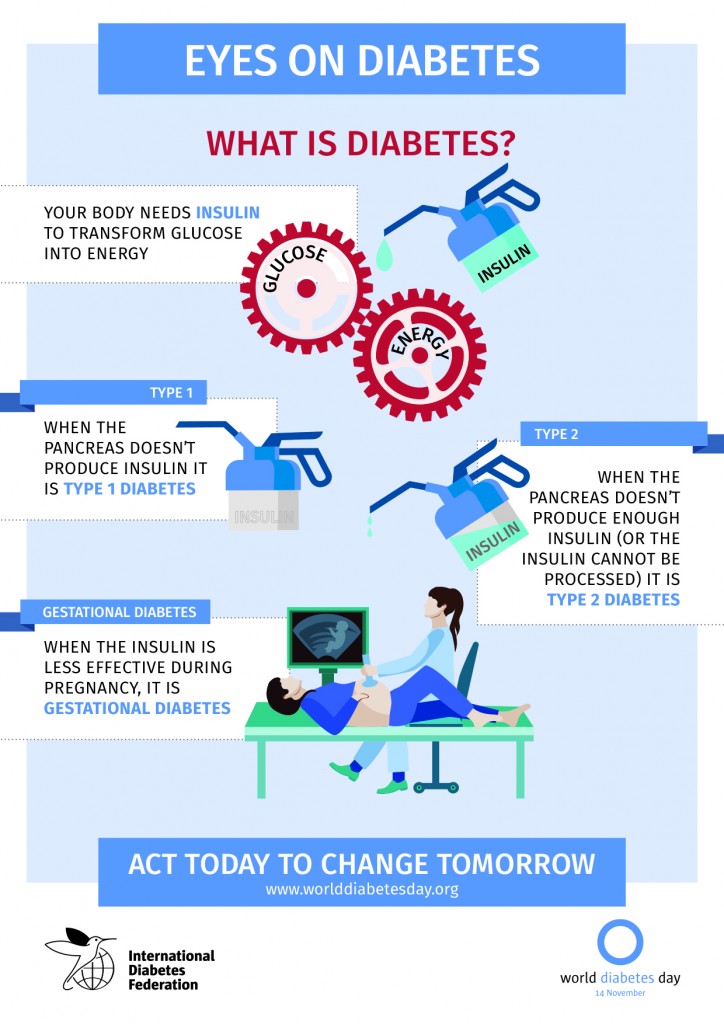
Why Diabetes Screening is so Important
The 2016 theme for world diabetes day is ‘Eyes on Diabetes’ which promotes screening and obtaining early diagnoses of Type 2 Diabetes. This is so important because a massive 1 in 2 adults with diabetes are undiagnosed!
In support of keeping an eye on diabetes, we wanted to explain the symptoms, risks and screening process to inform as many people as possible on just how simple it is to be screened for diabetes.
What actually is type 2 diabetes?
As we consume food, it goes through a process of being absorbed by the body. This involves the sugars being broken down and entering our blood stream. In order to combat the spike in blood sugar levels, the pancreas produces Insulin. Type 2 diabetes is where the pancreas either doesn’t produce enough insulin and/or the body’s cells do not respond to insulin effectively. This results in a prolonged increase of blood sugar levels, which is dangerous of allowed to continue for an extended period of time.
What are the symptoms?
Symptoms of diabetes are typically:
- Excessive thirst
- Weight loss
- Frequent urination
- Lack of energy
- Blurred vision
Am I at risk of diabetes?
There are a number of factors that may put you at risk of diabetes – some of the ones to look out for are:
- Weight
- Inactivity
- Family history
- Polycystic ovarian syndrome
- High blood pressure
- Age
How can I check if I’m at risk of diabetes?
Getting screened for diabetes is the best thing to do if you believe you are at risk of diabetes. Your GP will be able to arrange screening for you, and arrange care if you are diagnosed with diabetes. Even if you don’t have diabetes, but do have some of the risk factors, your GP will be able to help you to improve your overall health and decrease your risk of developing diabetes.
What if I already have diabetes?
In order to prevent or delay complications, you will want to keep three things as close to normal as possible:
- Blood glucose levels
- Blood pressure
- Cholesterol levels
What can my GP do for me if I have diabetes?
Your GP will be able to help you monitor and stay on top of your condition, by preventing complications. They may prescribe certain medications and refer you to specialists and allied health professionals in order to monitor your feet, eyes and help you to lose weight.
